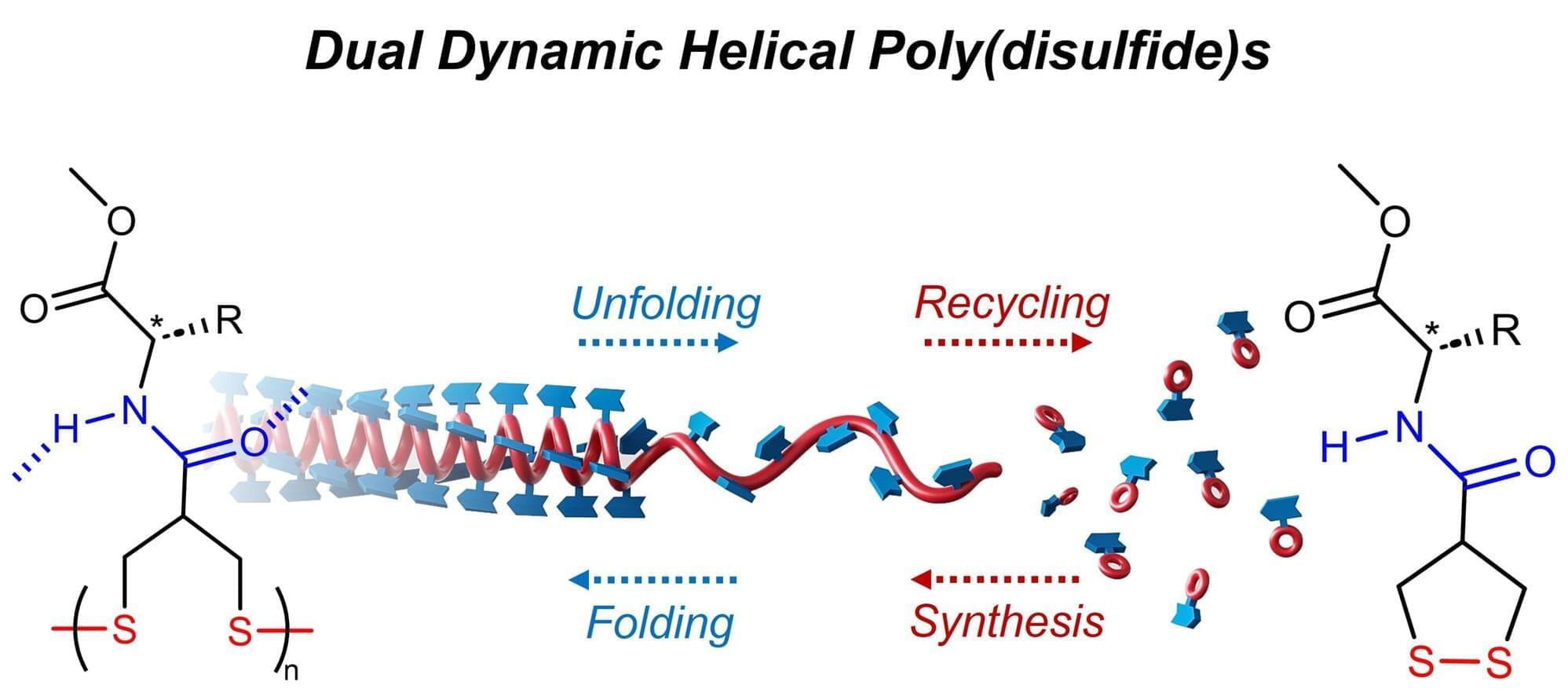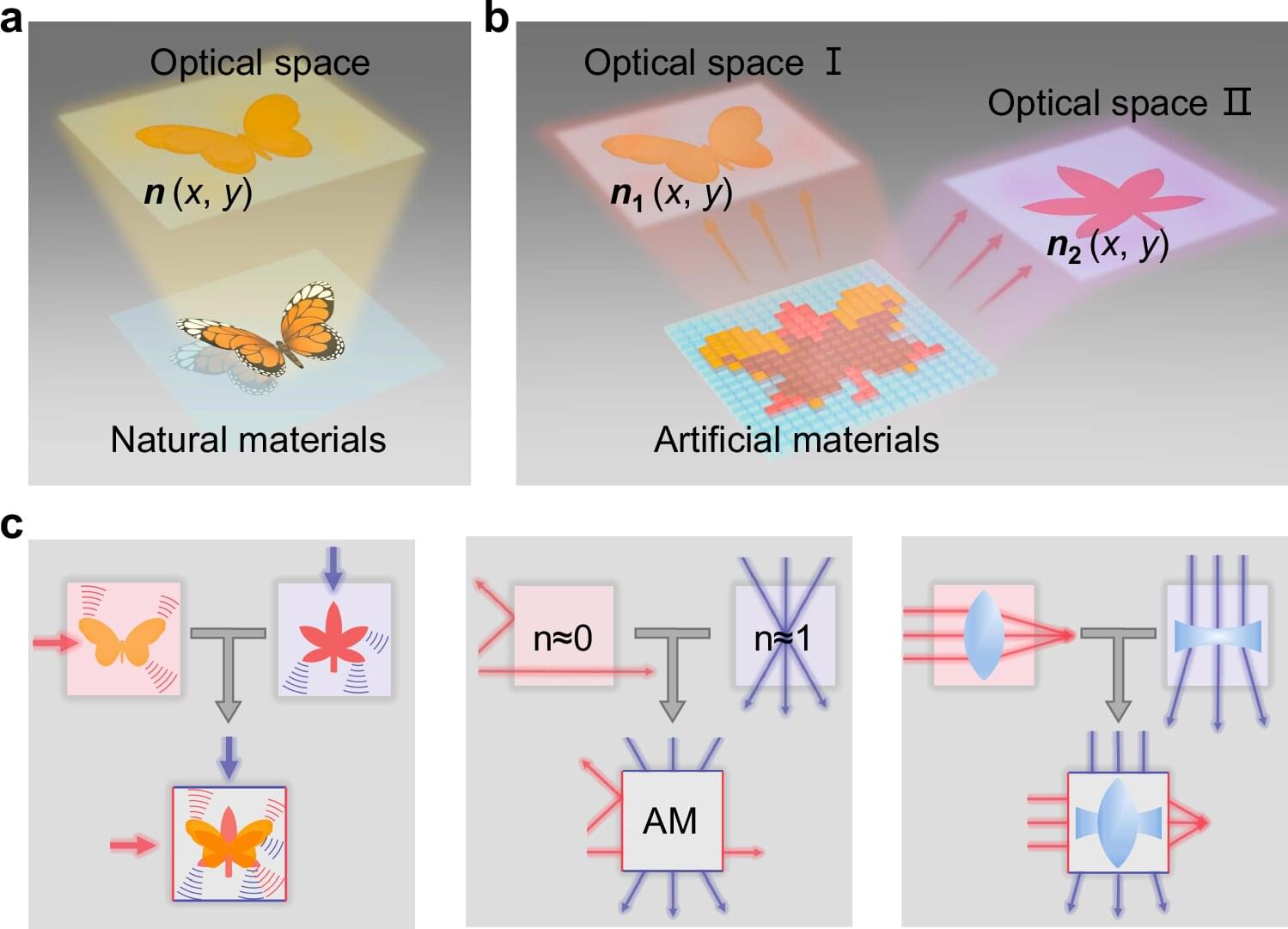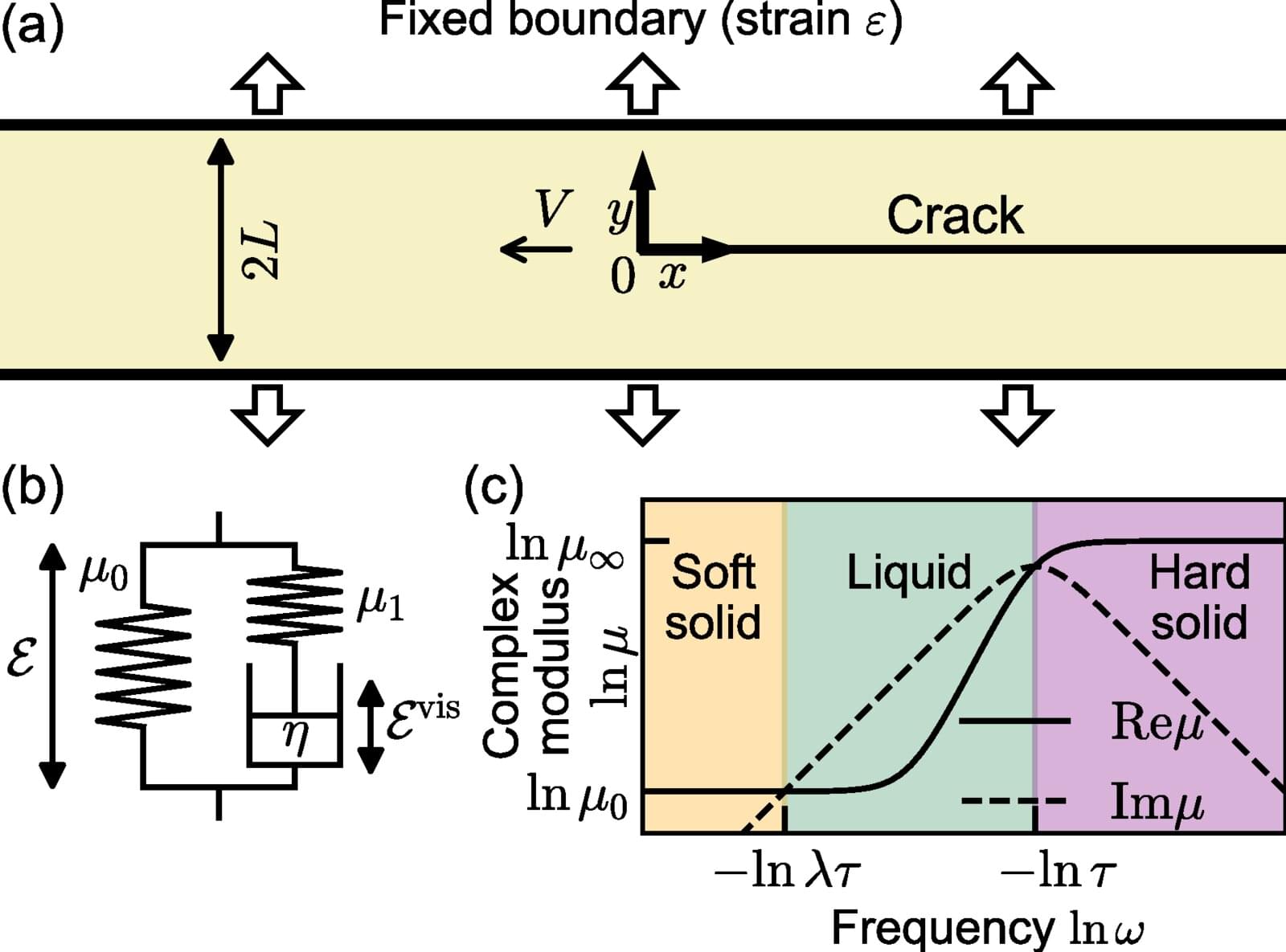A new approach stores and retrieves quantum states with record reliability, paving the way for improved quantum information processing.



Two-dimensional (2D) materials, which are only a few atoms thick, are known to exhibit unique electrical, mechanical and optical properties, which differ considerably from the properties of bulk materials. Some recent studies have also been probing these materials’ “transparency” to intermolecular interactions, such as van der Waals (vdW) forces—weak forces arising from fluctuating electrical charges, which prompt the attraction between molecules or surfaces.
Determining the extent to which these forces are screened by atomically thin materials could have important implications for the development of various technologies based on 2D materials.
Researchers at Peking University, Nanjing University of Aeronautics and Astronautics and Tsinghua University recently set out to shed light on whether 2D graphene systems fully transmit, partially screen or block vdW interactions.

A large international study involving nearly 700 participants reveals that women with a precursor condition to Parkinson’s disease show significantly less brain atrophy—decreased cortical thickness in the brain—than men, despite similar clinical severity. This discovery, published in the journal Nature Communications, could lead scientists to explore the role that hormones might play in treating the disease.
Isolated REM sleep behavior disorder is characterized by violent movements during sleep, where people literally “act out” their dreams. Far from being harmless, this disorder is the most reliable early warning sign of neurodegenerative diseases caused by the accumulation of a toxic protein in the brain: more than 70% of affected individuals will eventually develop Parkinson’s disease, Lewy body dementia, or, more rarely, multiple system atrophy (a disease affecting multiple body systems).
“This sleep disorder offers a unique window of opportunity to study the mechanisms of neurodegeneration before major motor or cognitive symptoms appear,” explains Shady Rahayel, professor at UdeM’s Faculty of Medicine and leader of this study.

Imagine a cloud that shines like a neon sign, but instead of raindrops, it contains countless microscopic dust grains floating in midair. This is a dusty plasma, a bizarre state of matter found both in deep space and in the laboratory.
In a new study, published this week in Physical Review E, Auburn University physicists report that even weak magnetic fields can reshape how these dusty plasmas behave—slowing down or speeding up the growth of nanoparticles suspended inside. Their experiments show that when a magnetic field nudges electrons into spiraling paths, the entire plasma reorganizes, changing how particles charge and grow.
“Dusty plasmas are like tiny particles in a vacuum box,” said Bhavesh Ramkorun, lead author of the study. “We found that by introducing magnetic fields, we could make these particles grow faster or slower, and the dust particles ended up with very different sizes and lifetimes.”

A research team, led by Professor Heein Yoon in the Department of Electrical Engineering at UNIST has unveiled an ultra-small hybrid low-dropout regulator (LDO) that promises to advance power management in advanced semiconductor devices. This innovative chip not only stabilizes voltage more effectively, but also filters out noise—all while taking up less space—opening new doors for high-performance system-on-chips (SoCs) used in AI, 6G communications, and beyond.
The new LDO combines analog and digital circuit strengths in a hybrid design, ensuring stable power delivery even during sudden changes in current demand—like when launching a game on your smartphone—and effectively blocking unwanted noise from the power supply.
What sets this development apart is its use of a cutting-edge digital-to-analog transfer (D2A-TF) method and a local ground generator (LGG), which work together to deliver exceptional voltage stability and noise suppression. In tests, it kept voltage ripple to just 54 millivolts during rapid 99 mA current swings and managed to restore the voltage to its proper level in just 667 nanoseconds. Plus, it achieved a power supply rejection ratio (PSRR) of −53.7 dB at 10 kHz with a 100 mA load, meaning it can effectively filter out nearly all noise at that frequency.

Modern chemistry is increasingly focused on developing sustainable processes that reduce energy consumption and minimize waste. Photocatalysis, which uses light to promote chemical reactions, offers a promising alternative to more aggressive conventional methods. However, most existing photocatalysts are homogeneous—they dissolve in the reaction medium and cannot be easily recovered or reused—and they typically rely on blue or ultraviolet light, which is more energy-demanding and penetrates poorly into reaction mixtures, limiting their large-scale and biological applications.
Researchers at the Center for Research in Biological Chemistry and Molecular Materials (CiQUS) have developed an innovative, more sustainable method that uses red light—a low-energy, deeply penetrating light source —together with recyclable solid catalysts to promote chemical reactions cleanly and efficiently. The study highlights the potential of covalent organic frameworks (COFs) as red-light-active heterogeneous photocatalysts, a field that remains largely unexplored. This combination of reusable materials and mild light represents a significant step toward greener chemical methodologies.
The work is published in the Journal of the American Chemical Society.

Researchers at the University of Groningen in the Netherlands have developed a polymer that adopts a coiled spring configuration at low temperatures and unfolds again upon heating. Furthermore, the molecule can break down into smaller molecules under certain conditions. The Shanghai Tower, with its spiral shape, served as the inspiration for the project following a visit five years ago. A description of the resulting helical polymer was recently published in Nature Chemistry.
Spiraling structures are common in biological molecules. A well-known example is the double helix of DNA; another is the alpha-helix domains in proteins. Various artificial helices have been created, some of which can change their shape. Other synthetic polymers can be recycled into their monomers, but so far, no polymers have been developed that can both change shape and be recycled into their chemical building blocks.

In some parts of Earth’s interior, seismic waves travel at different speeds depending on the direction in which they are moving through the layers of rock in Earth’s interior. This property is known as seismic anisotropy, and it can offer important information about how the silicate rock of the mantle—particularly at the mantle’s lowermost depths—deforms. In contrast, areas through which seismic waves travel at the same speed regardless of direction are considered isotropic.
In the bottom 300 kilometers of the mantle, also known as the D layer, anisotropy is potentially caused by mantle plumes or mantle flow interacting with the edges of large low-shear-velocity provinces: continent-sized, dense, hot BLOBs (big lower-mantle basal structures) at the base of the mantle above the core. Many questions persist about the viscosity, movement, stability, and shape of the BLOBS, as well as about how they can be influenced by mantle plumes and subduction.
Published in the journal Geochemistry, Geophysics, Geosystems, Roy and team used ASPECT, a 3D mantle convection modeling software, and ECOMAN, a mantle fabric simulation code, to examine the deep mantle. They tested five different mantle model configurations, adjusting the viscosity and density of the BLOBs. The goal was to see which configuration would most closely re-create the observed seismic anisotropy.

Researchers have harnessed nonlocal artificial materials to create optical systems that emulate parallel spaces, wormholes, and multiple realities. A single material acts as two distinct optical media or devices simultaneously, allowing light to experience different properties based on entry boundaries. Demonstrations include invisible optical tunnels and coexisting optical devices, opening new avenues for compact, multifunctional optical devices by introducing nonlocality as a new degree of freedom for light manipulation.
What if a single space could occupy two different objects at once, depending on how photons access this space? Scientists have brought this sci-fi concept to life, creating optical systems that mimic the exotic phenomena of parallel universes and wormholes.
In a study published in Nature Communications, researchers in China used nonlocal artificial materials to develop “photonic parallel spaces.”

A research group from the University of Osaka, Zen University, and the University of Tokyo has mathematically uncovered the mechanism that causes crack tips to sharpen during the rapid fracture of rubber.
The bursting of rubber balloons or tire blowouts is caused by rapid fracture, a phenomenon in which a small crack propagates instantaneously. During this process, the crack tip sharpens, accelerating the fracture. However, the reason behind this sharpening had long remained unexplained. Traditionally, it was believed to result from the material’s complex nonlinear effects.
The research group—comprising Hokuto Nagatakiya, a doctoral student; Shunsuke Kobayashi, assistant professor; and Ryuichi Tarumi, professor at the University of Osaka; along with Naoyuki Sakumichi, associate professor at Zen University and project associate professor at the University of Tokyo—has mathematically solved the problem of crack propagation. They derived equations that describe both the shape of the crack and the overall deformation of the material.